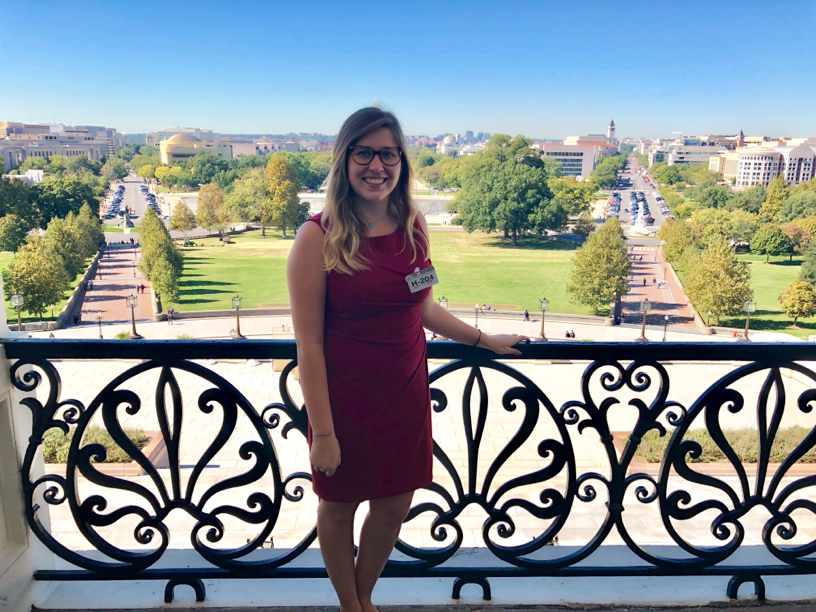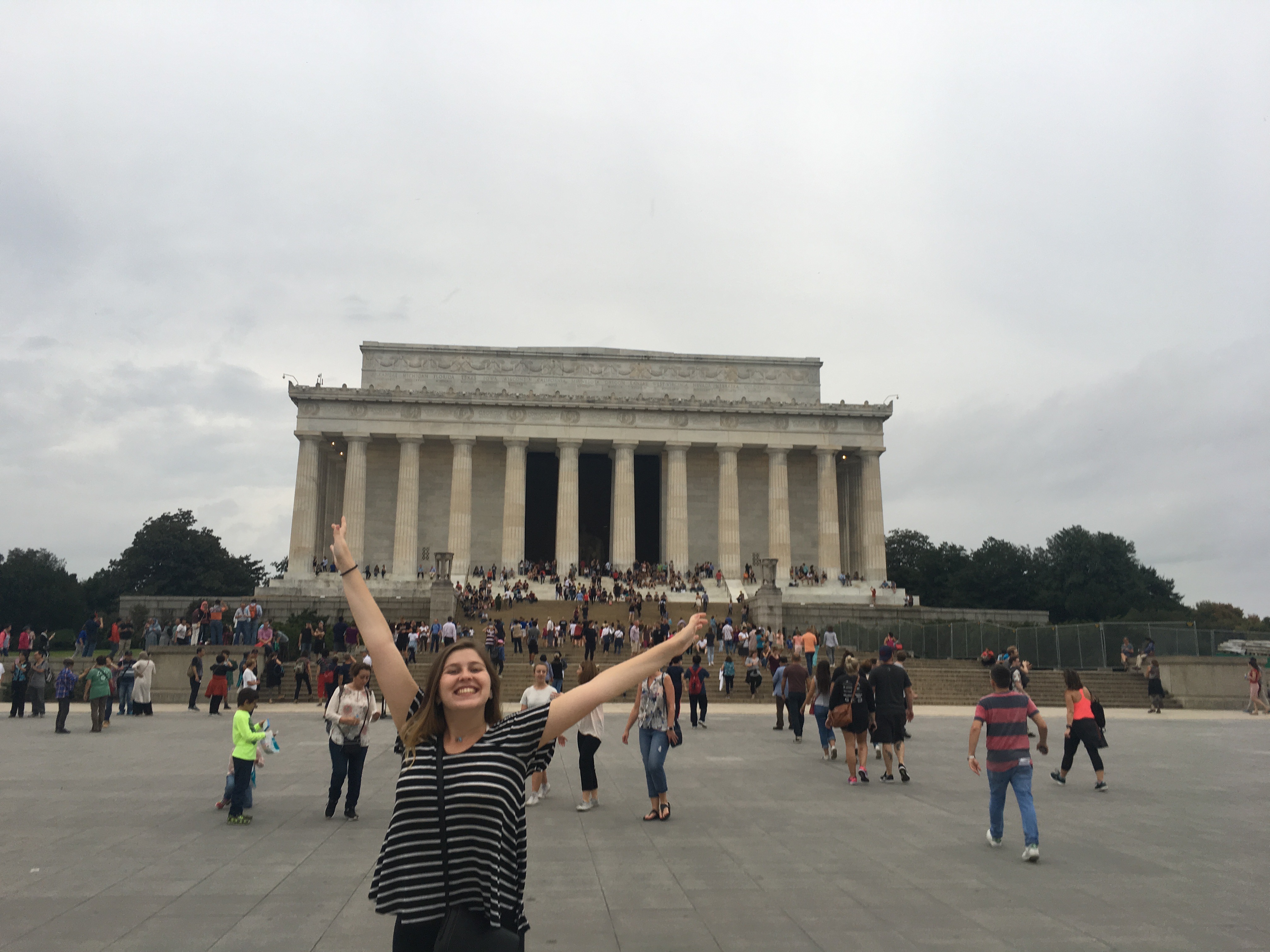
In D.C.’s Public Defender Service
Vivienne Pismarov, Psychology ’19
This fall semester, through the USF in DC program, I’ve had the opportunity to intern with the Public Defender Service. Everyone working there is tasked with one job and one job only: do everything in your power to support your client. As an investigative intern, I request records, locate potential witnesses, serve subpoenas, canvass the scene of the crime, and more. Even though sometimes this role requires me to work late into the night and over the weekends, I’m honored to do this job because I believe every client deserves someone who is genuinely in their corner ready to fight against the giant criminal justice system.
Working in the Special Litigation Division, we defend clients who were sentenced to life in prison as juveniles and are now eligible under the Incarceration Reduction Amendment Act to have their sentences reduced or eliminated altogether. To be eligible for re- sentencing, individuals must have already spent 20 years or more in the prison system. These institutions often do not prioritize the rehabilitation of their inmates; instead, inmates are exposed to terrible living conditions, daily violence, racism and abuse. Such conditions make a transition back into society difficult and also make successful re-sentencing challenging.

My first client, who I have spent most of my time in D.C. working with, was sentenced to life in prison when he was just sixteen years old after being misidentified as the perpetrator of a drive-by shooting that injured four teenagers in his own neighborhood. While there were witnesses and multiple examples of false testimonies to prove that our client was not at the scene of the crime and that the police involved in the case bribed witnesses to lie, my client has been imprisoned for the entirety of his adult life. This injustice astounds me. I have grown up with the privilege of having a supportive family and an education that has opened up infinite doors for me. Meanwhile an innocent young black man from the Southeast quadrant of D.C. has spent this same amount of time wrongly imprisoned and deprived of experiencing the world that he so desperately wants to be a part of again. Every day I come to work with a goal that one day this man will be able to enjoy a life of freedom.
We have witnesses who’ve confessed that they lied to the police. We have a solid alibi for our client. And we have proof that one of our client’s friends actually committed the crime. But while serving time in prison, our client was provoked by other inmates and was involved in a fight. Before he knew it, our client killed another man in prison.
From the bottom of my heart, I know that our client was not involved in the drive-by shooting that relegated him to a life in prison. However, I also cannot deny that a man in prison was killed at the hands of my client but I certainly believe that he would not have killed anyone if my client was never wrongfully convicted in the first place.
My client’s situation is not an anomaly. He had a great defense going for him and an amazing likelihood that he would be released from prison given the evidence that we had gathered in his favor. However, the prison system cultivated an environment where my client felt that he had to resort to murder just to live another day. Now, my client will likely continue living within the four walls that he has been living in for more than 20 years, while I have the world at my fingertips.
 Given my client’s situation, I still will not give up fighting for his rehabilitation and release. Avis Buchanan, the Director of the Public Defender Service in D.C., emphasizes making a connection with a client and recognizing their humanity is required to successfully assist them in their defense. This is the challenge of the criminal justice system.
Given my client’s situation, I still will not give up fighting for his rehabilitation and release. Avis Buchanan, the Director of the Public Defender Service in D.C., emphasizes making a connection with a client and recognizing their humanity is required to successfully assist them in their defense. This is the challenge of the criminal justice system.
Avis Buchanan says that when you cannot see the humanity in your client, “that’s when you know it’s time to leave.” My time participating in the USF in D.C. program has taught me to never forget that everyone is human and deserving of someone being in their corner. While my internship is quickly coming to end, I’m not ready to leave and I’m not ready to stop fighting for the people who have been overlooked by society. When I leave this internship program at the Public Defender Service in D.C., I know that I will continue to advocate for people like my client who have been victimized by the prison system.

